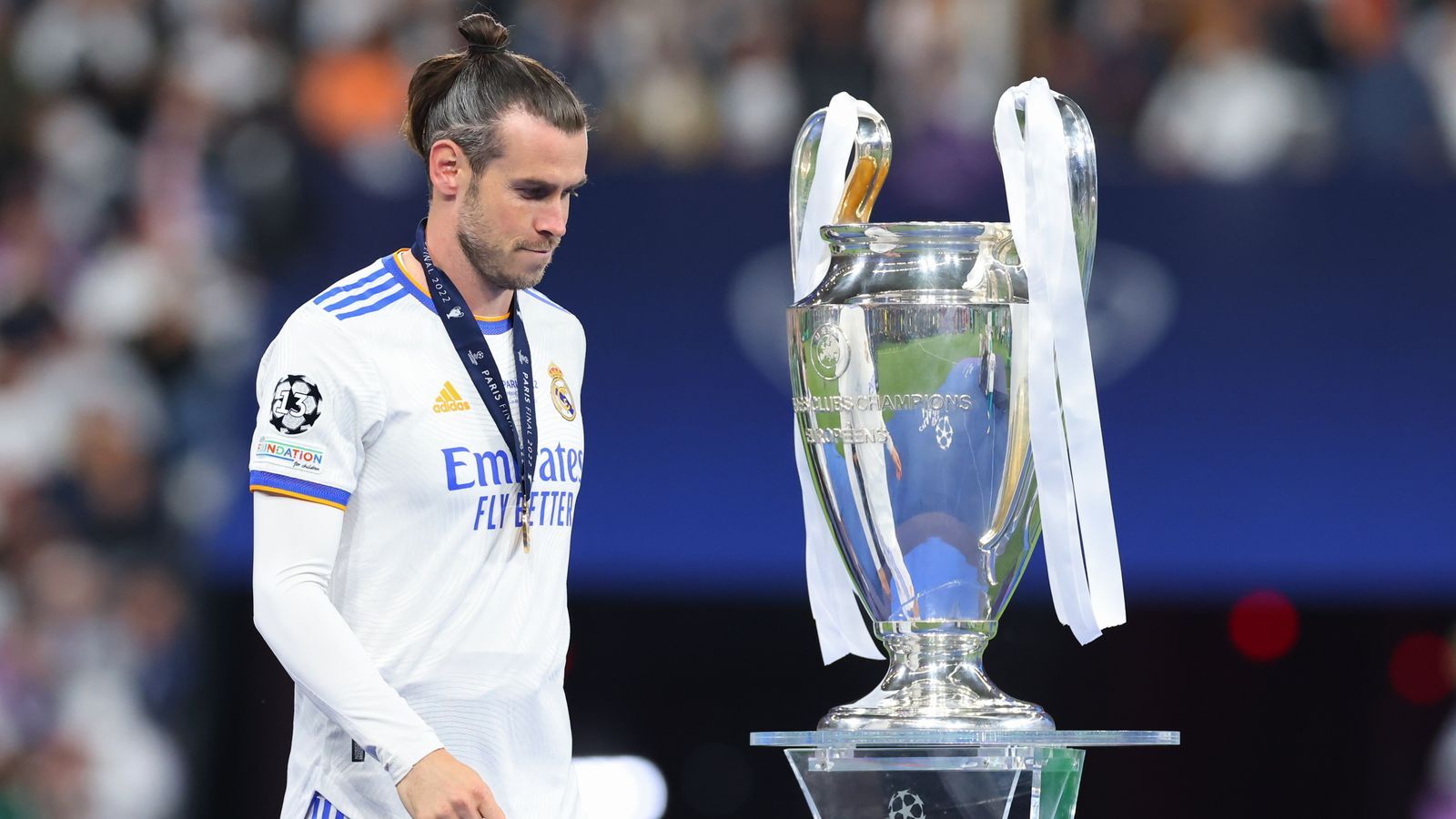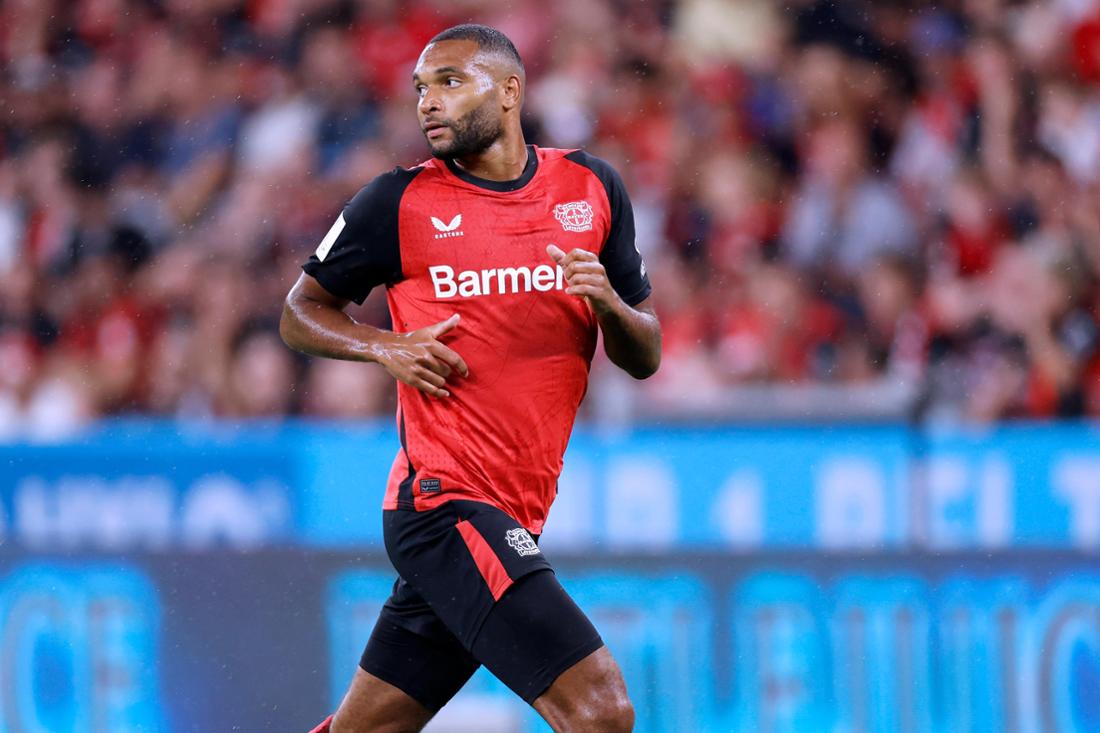I wouldn’t, as a rule, recommend the genre of “the footballer’s autobiography”; a notoriously dull way of wasting ink, paper, and time. I would, however, make an exception for Gareth Bale’s if – and this is a strong if – he genuinely reflected on what was going on in his head in the long tail-end of his Real Madrid career. The reaction to his retirement at the age of 33 has been a combination of shock and adulation. The adulation I get, especially from Wales fans. Shock? Really? This is Gareth Bale: Mr Wales, Golf, Madrid. Did you mistake him for Joaquin or Ryan Giggs? His MLS club LAFC were reportedly taken aback that he has quit the game after saying he had years of football left in him when he signed last summer. Like his career as a whole, Bale’s American cameo was a roaring success measured in trophies and eye-catching contributions: he started only two matches but came off the bench in the 97th minute of the MLS Cup final against Philadelphia Union to head a 128th minute equaliser, forcing a penalty shoot-out that LA won. He scored Wales’ only goal at the World Cup, a penalty in the draw with USA but it was clear that his time as a world class player was over; he was still an inspirational presence for his countrymen, but he was far from the driving force that dragged them to the semi-finals of Euro 2016.
He has been described as the best British player ever. His five Champions League winners’ medals form the centrepiece of his case, even if we acknowledge that last season’s was a bonus, collected as a much-maligned, highly-paid, underemployed bench warmer. The coverage, understandably, has focused on his big moments: the overhead kick in the 2018 final against Liverpool, the lung-busting burst beyond Marc Bartra in the 2014 Copa del Rey final, the Champions League demolition job for Tottenham against Inter, his 35-yard free-kick against England in 2016. But this is not an obituary – we’re allowed to criticise a man who is guaranteed the status of a hero in his homeland and has an eye-watering stash of Real Madrid’s money in his bank account. Gareth Bale is an enigma, and it is fair to ask what happened.
He played 43 games in a season as a 17-year-old at Southampton, which – and I concede I am guessing – might have had a bigger bearing on his future injuries than his quest to lower his golf handicap. He moved to Spurs and needed ankle and knee operations before an impressive physical flowering turned him into a rampaging beast of a man, switching from left-back to winger to free-roaming attacker. In the 2012/13 season he was close to unstoppable and was named as both Football Writers’ and Players’ Player of the Year. Real Madrid were determined to get him and paid a world record fee of €100m to do so, although they seemed keen to conceal the true extent of the deal, according to speculation, as a sop to Cristiano Ronaldo’s ego.
Was he a success at Real Madrid? Unquestionably yes. He was a key part of the team in that remarkable run of Champions League success, scoring the goal that put them in front in extra-time in the final against Atletico Madrid in 2014. He scored in the shoot-out in another Madrid derby in the 2016 final and came off the bench in the win over Juve in Cardiff, 2017. He was a substitute again in the 2018 final, and in a way his overhead kick did Liverpool’s Loris Karius a favour, taking some of the attention away from the keeper’s two aberrations. Bale also won three La Liga titles, although he played a total of just 40 matches in those campaigns. Add in the Copa del Rey, Super Cups and World Club Cups and a trophy haul of 16 should be enough to make him a legend. But Real Madrid is a club with an ample back catalogue of legends and so they can afford to be pickier than most. Being whistled at the Santiago Bernabeu doesn’t have to mean the end for a Real Madrid player; it happens to the best. But Bale was surprised and hurt and admitted that it knocked his confidence. It is never really 80,000 people whistling, just a portion, and there is always a way back for a player who shows the necessary humility. There lies one part of the Bale paradox: for a quiet, seemingly unassuming man, he didn’t take some of the simple steps to get onside with the Real Madrid community, fans and media. I am not a Real Madrid fan, but I shared the sense that he simply didn’t work hard enough in games. Cristiano Ronaldo didn’t dip below 33 goals in any of his nine seasons at the club and for six consecutive campaigns he passed a half-century of goals. If he didn’t close down opponents or track back to win the ball, he had capital in the bank – yet even he was whistled. Bale was a great player, but he was no Cristiano Ronaldo. Luka Modric and Karim Benzema are great players and they sweated for the cause. It isn’t just performative, it matters; a modern top-class player has to work harder than Bale did at for Real Madrid.
Then there’s the golf. Bale’s amazing, acrobatic athleticism came with a price: frequent injuries. He wasn’t able to shake them off as readily as Cristiano but that is an incredibly high bar to judge from. The Madrid media pack, notoriously spikey, unreasonable and attention-seeking, lasered in on the time he spent on the golf course. He checked with doctors and was reassured that it wasn’t contributing to his frustrating injury record, but it was a stick to beat him with. He was criticised for having poor Spanish, which I have always suspected was code for not being a willing interviewee. I have some sympathy with the reporters and writers over this: if a player or manager is unhelpful, they shouldn’t expect favours when performances are poor, although in Bale’s case it went beyond that lack of quid pro quo.
Bale was interviewed by British TV on the pitch after the 2018 Champions League final and though he was asked about the overhead kick he scored; his first answer was all about his frustration at his lack of playing time since recovering from his latest injury. He said he would “sit down in the summer and discuss it with my agent.” If only he had left then. The following season started well, and Bale scored in his first three La Liga matches, appearing 44 times for the club. If only he had left then. Instead, he stayed, and resentment grew. The media noted that he was often fit for Wales but seemingly not for Madrid. The contrast with the last great Welsh footballer was stark. Giggs played 963 matches for Manchester United but was half-hearted about his international career; between 1994 and 1998 won only 11 caps, openly sacrificing his country’s prospects to stay fit for his club. No matter what the thermometer said, Bale felt the warmth of Wales as a reassuring counterpoint to the coldness of Madrid. He seemed hurt by the emotional rejection he suffered in Spain and rather than begging for acceptance protected himself by offering a cold shoulder. His Welsh teammates didn’t help by producing a fan’s flag that read: “Wales, Golf, Madrid in that order” as they celebrated with Bale.
Of course, in football no story is only about emotions, rejection, belonging and national pride. Remember to follow the money. In that summer of 2018, Bale should have told his agent to get him a move, and not to make wages the deal-breaker. His was a classic case of the top club wage trap. There is a handful of clubs who hoover up so much of the money available to football that the tier below can’t compete. Fail at an elite club and it is devilishly tough to find someone else to match your wages. Real Madrid are particularly prone: Eden Hazard and Mariano Diaz should be anywhere but the Bernabeu, playing football. We can blame his agent, Jonathan Barnett, but Bale is an adult and makes his own decisions. He seemed to the outside world to be happy picking up his vast wages, enjoying Real Madrid’s treatment room and trying to get fit for his next international. It is different for us: I would happily accept a wages trap because I’ve got a mortgage to pay but when you’ve earned €30m a year for six years, do you really need it for the seventh, eighth and ninth? He did move on loan, eventually, and spent 2020/21 back at Spurs where he played 1665 minutes in all competitions, scoring 16 goals – not bad at all, but not worth the wages, whoever was paying them. He spent one more year at Real Madrid and collected one more Champions League trophy, after playing in the competition for nine minutes and staying on the bench in the final. That was the real source of resentment in Madrid, not golf or Spanish lessons, and the suspicion was always that the club was happy to secretly encourage the attacks on their player.
Gareth Bale cracked football’s code: a phenomenal athlete who inspired his country to new heights and conquered every peak with the world’s most successful club, but I fear money clouded his judgement and his emotional hurt was manifested in his stubborn refusal to leave Madrid before his second contract, signed in 2016, expired in 2022. He led Wales to the World Cup but was that enough? I really want to know whether he has any regrets, but I suspect we will never find out; I don’t think he is the book-writing sort.
Jon Driscoll is an esteemed author, commentator and football writer with nearly three decades of experience covering the beautiful game. For more of his thoughts, check out his Twitter here.





Excellent piece, worthy to be called “written by a journalist”.